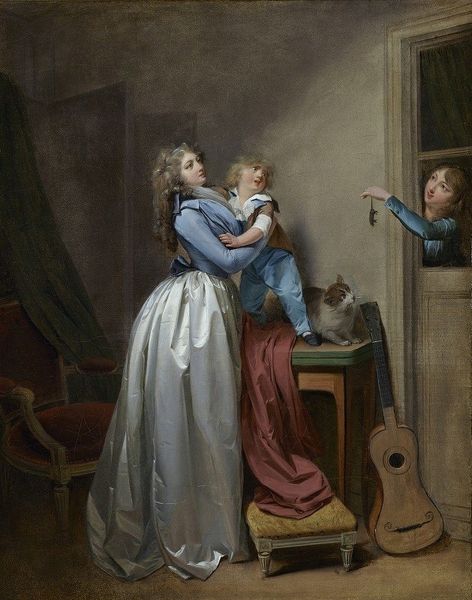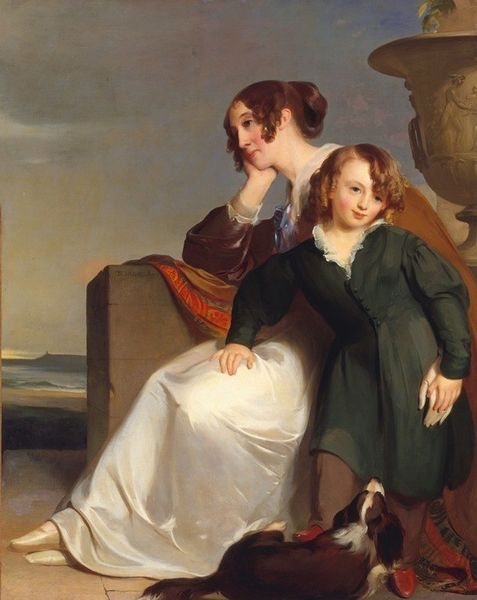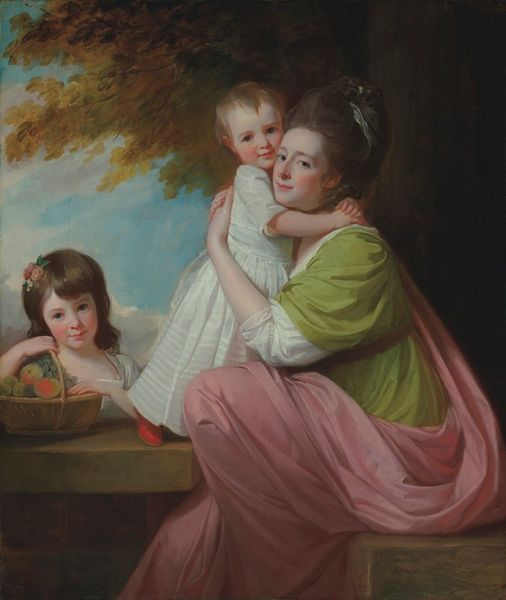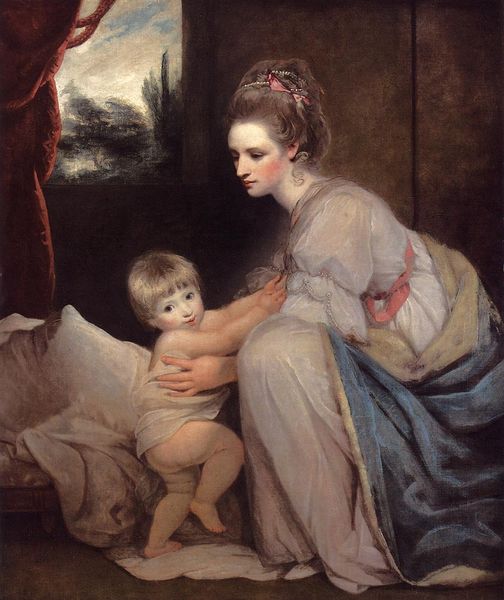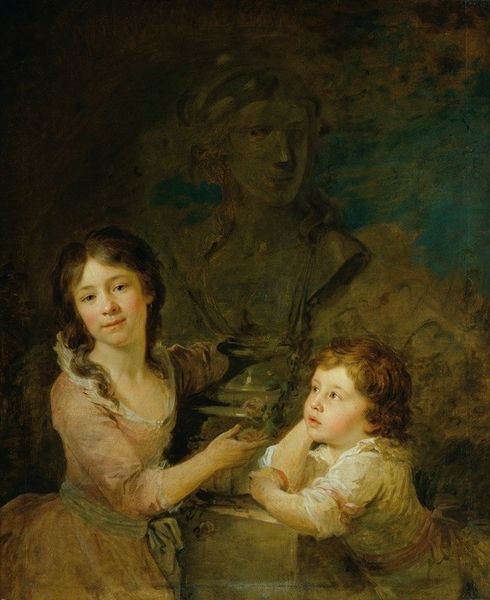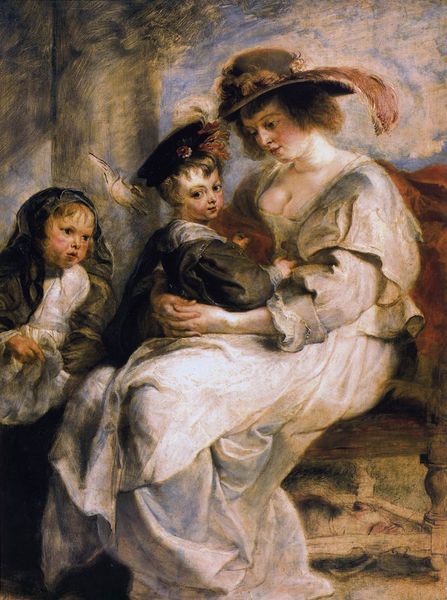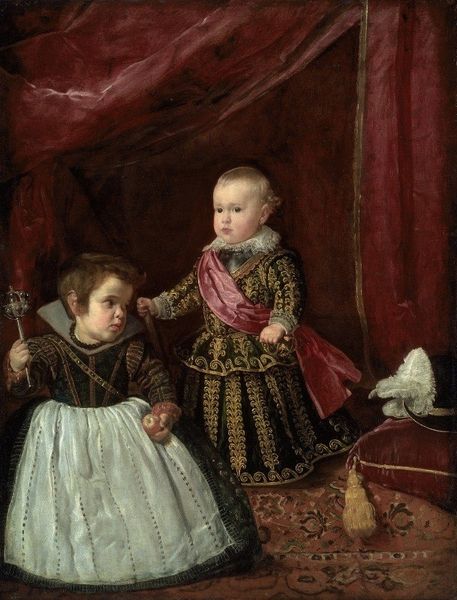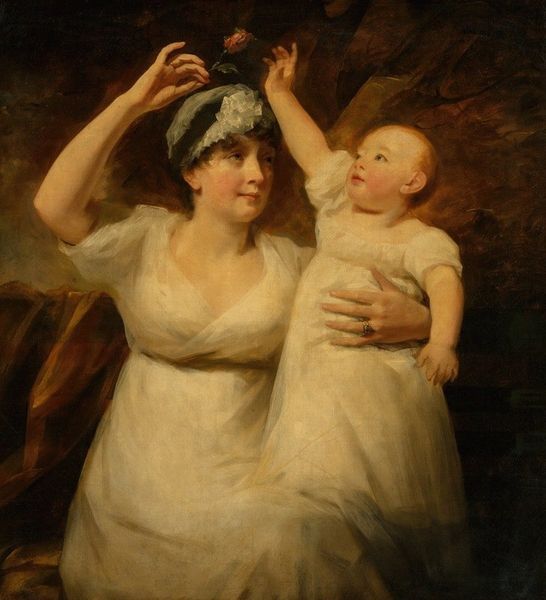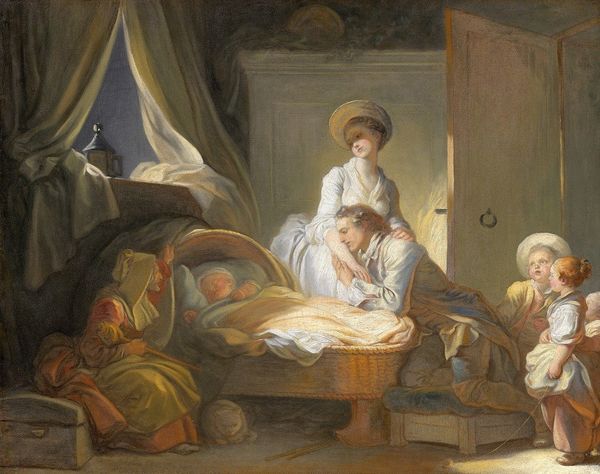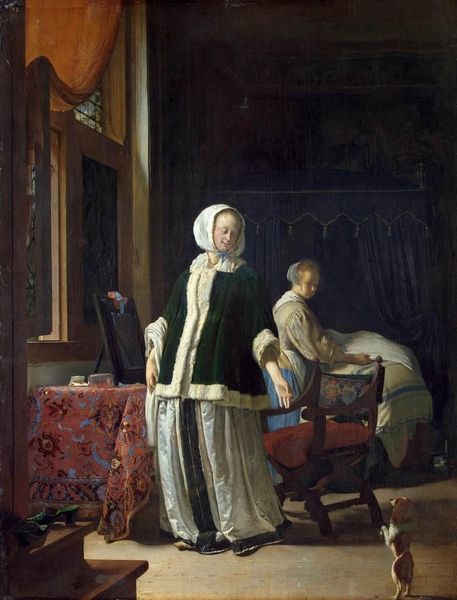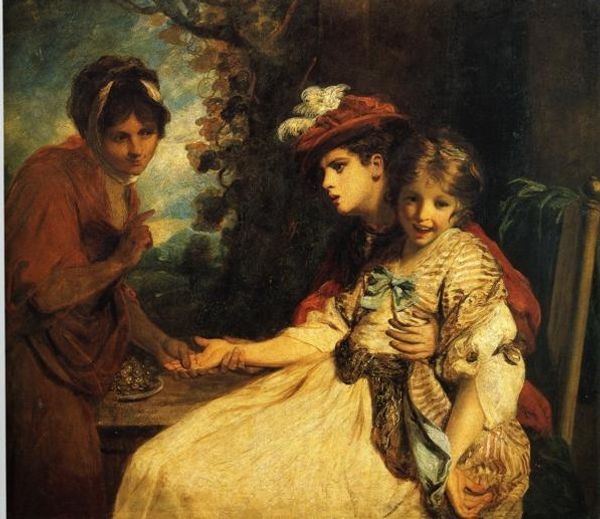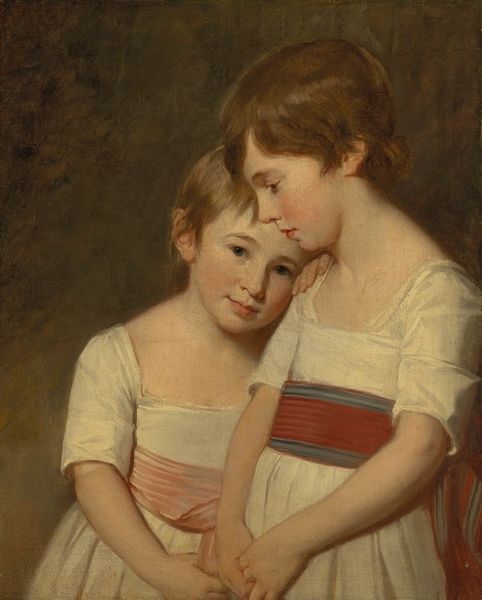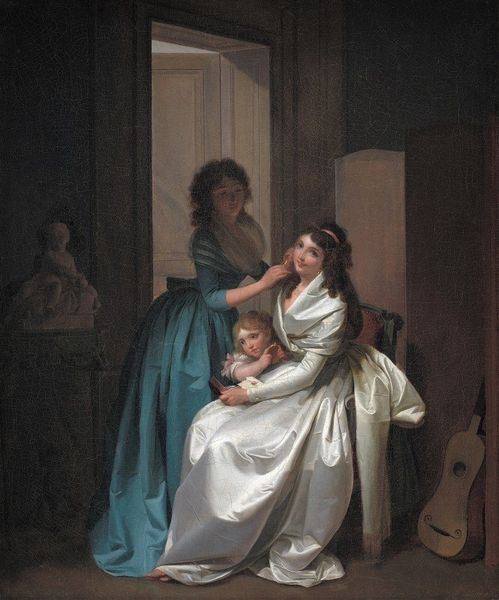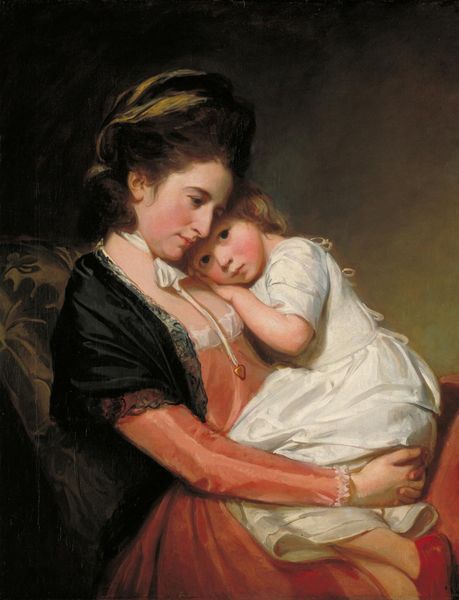
Copyright: Public Domain: Artvee
Curator: I'm immediately drawn to the painting’s somber, yet comforting mood; it's an intimate portrayal of a mother and child rendered with delicate brushstrokes, capturing the soft glow of what I presume is late afternoon light. Editor: Indeed. The painting is entitled "Bedtime", an 1858 oil on canvas by William Powell Frith, a British artist known for his narrative genre scenes and portraits. He captured Victorian life, often with a focus on the middle and upper classes. Curator: The details are intriguing, especially the mother's elegant attire. Her gaze is thoughtful, almost melancholic. What social constructs inform how we perceive motherhood within this composition? Is it sentimental idealization, or a more nuanced view? Editor: Examining Frith's "Bedtime" through the lens of Victorian England reveals much. Consider the period’s emphasis on domesticity. The scene celebrates motherhood, yes, but it also subtly reinforces prevailing social norms. The presence of what seems to be a servant's outfit haphazardly thrown over the chair is a gentle reminder of Victorian society's silent exploitation. Curator: I am intrigued by the tension in her expression; this piece challenges the simple Madona/Whore complex by showing that mothers also have to manage staff, think, be intelligent...It shows more than simple maternity. Editor: Frith exhibited paintings like this one at venues that served as gathering points for the rising middle classes who felt empowered through artistic consumption, giving him both an artistic career, but equally allowing him to become a form of gentle socio-political commentator. Curator: And the little boy, perched on her lap, clad in his nightgown, feels like an extension of her. What are your thoughts? Is it a sentimental portrayal, or something deeper? Editor: There is undeniably an element of idealization, catering to Victorian sensibilities; however, the artist captures a certain authentic intimacy between parent and child through careful representation, elevating "Bedtime" from mere sentimental cliché to something more psychologically resonant. Curator: Considering its time, and what it reflects about mothers and children, what we expect of them, "Bedtime" provides valuable socio-historical insights, prompting questions about identity, family, and representation. Editor: Agreed, it serves as a poignant artifact that invites both historical analysis and contemporary reflection.
Comments
No comments
Be the first to comment and join the conversation on the ultimate creative platform.
